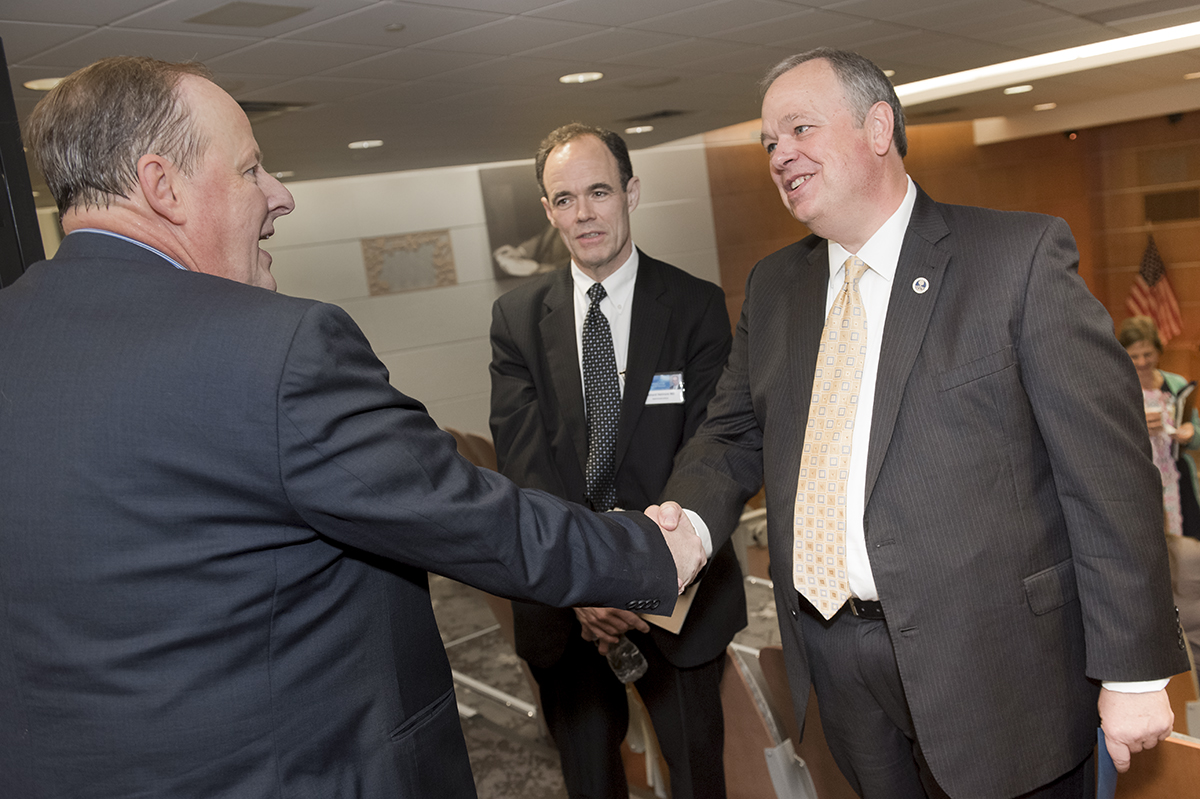UW-Eau Claire and Mayo Clinic expand research opportunities
A new agreement strengthens the bond between two large organizations
More stories from Elizabeth Gosling
Photo by SUBMITTED
Chancellor Schmidt finalized an agreement with Mayo Clinic over the summer to expand research opportunities for UW-Eau Claire students in many fields of study. Discussion over the agreement began in February of this year, Schmidt said.
UW-Eau Claire’s long tradition of undergraduate research reached higher levels this summer with a new large-scale agreement with Mayo Clinic Health System.
The chancellor said the agreement puts people in place at Mayo Clinic and Eau Claire specifically dedicated to the agreement and expects both parties to actively pursue projects.
The contract mirrors one set in place by Mayo Clinic in the country’s southwest with Arizona State University. Mayo Clinic’s regional vice president for northwest Wisconsin, Richard Helmers, worked in Phoenix for the health system, where the first master-level agreement took place.
“I’m very excited that UW-Eau Claire is only the second university in the world to have such a research agreement with Mayo Clinic,” Schmidt said.
Katy McGarry, student body president, said the agreement will greatly help students gain more experience, ranging beyond the medical field in areas such as communications and business.
“Mayo Clinic is able to play off the students and faculty in their research, and vice versa,” McGarry said. “It’s a really great thing for our students who are in those fields and our university in general to be able to have such a great institution here in the Chippewa Valley that they can have that research agreement with.”
Although the agreement will impact nursing and health science students the most, McGarry said the agreement affects the entire campus community. Other institutions in the region will see the agreement and arrange similar agreements, she said.
In 2017, Eau Claire was named the top master’s level undergraduate research institution in the country by the Council on Undergraduate Research. At last year’s Celebration of Excellence in Research and Creative Activity (CERCA), almost 300 research projects were showcased, all of them being student-faculty driven, according to Eric Jamelske, in the Leader-Telegram.
Eau Claire and Mayo Clinic leaders arranged the agreement, Chancellor James C. Schmidt at the helm of negotiations. As part of his role, Schmidt wants the university to be active in the community by working with industries in the Chippewa Valley.
Schmidt said Mayo Clinic and Eau Claire have had a long-standing relationship and the agreement exists as proof.
“We have reduced the bureaucracy required to do a research project,” Schmidt said. “We’ve addressed most of the red tape that you would normally have when two non-profits want to work together on research in a master agreement.”
Helmers and Schmidt discussed the pact in February of this year when Schmidt visited Phoenix. He said it is the first step to an improved partnership with the medical organization.
With the strengthened solidarity between the two organizations, Schmidt said doctors and other medical researchers may be able to teach classes at the university in addition to working on research projects.
“When it comes right down to it from my perspective and Dr. Helmers’ perspective, finding the best talent, if you can get that, almost everything can take care of itself,” Schmidt said.
The chancellor said the agreement aims for interdependence, the idea in which we go beyond dependence and independence to interdependence.
“Interdependence understands that you can achieve greater outcomes for both parties or all parties by doing things together in the interests of each,” Schmidt said.
Hannah Sisto, a junior nursing student says the agreement is a very exciting opportunity for students in the nursing program.
“I think that it’s a very exciting opportunity for nursing students to be able to participate in more internships and more research,” Sisto said.

